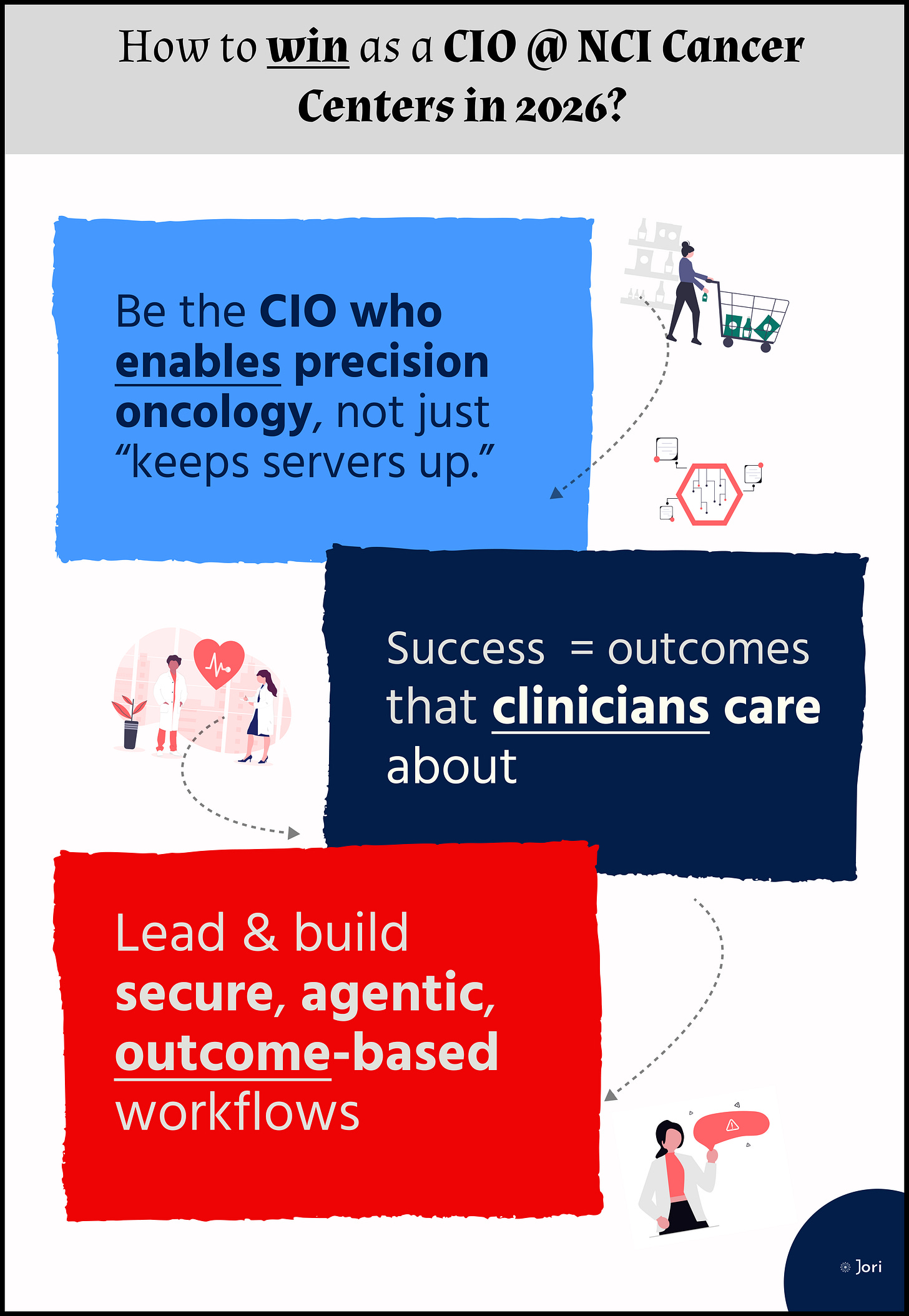How CIOs at NCI Cancer Centers Can Propel Impact (and their own careers)
A playbook for current and upcoming leaders in cancer care
“Ensure and manage availability, confidentiality, and integrity of all NCI IT systems.” – Jeff Shilling, as Acting CIO of the National Cancer Institute (2019)
That, right there, is solid advice. But 2019 was the year before AI burst into the scenes.
Of course, you should keep systems running, data secure, clinicians confident. But if you stop there, your impact (and your career trajectory) runs flat.
We combed through publications, interviews, and public mandates from CIOs across top NCI institutions and boiled it down to three core areas that separate career-makers from career-keepers.
1) Build on the Foundation
Data is your strategic weapon. You’re sitting on massive troves and if you can’t make it useful, you might as well not have it. You need a single patient view that combines EMR, genomics, imaging, and trial data into intelligence for care, research, and AI.
Resilience is non-negotiable. Zero downtime isn’t just a target—it’s a promise. But resilience isn’t just about shutting down threats—it’s about defending PHI without disrupting clinicians. That’s leadership the medical staff notices.
Innovation is essential, but not for its own sake. Invest in AI and agents that demonstrably improve survival, trial accrual, or reduce clinician burden. Automation theater—expensive pilots that don’t stick—doesn’t move outcomes.
2) Learn from What Doesn’t Work
The biggest saboteurs of progress are the ones that look impressive on paper but collapse in practice.
▪️Black-box AI with no integration path? Boxed out of adoption.
▪️Security so tight it halts workflows? Fractures trust.
▪️Positioning IT as a cost center? You cede strategic ground. Your IT with workflow automation is the spinal cord of the entire org, not an expense item.
▪️Unscalable pilots? They burn budget and credibility.
3) Elevate Through Clinical Impact
Every system upgrade, every successful integration - ruthlessly tie that to a clinical win. Did a clinician shave minutes off trial matching? Did patients feel peace of mind? Bolt your wins to those.
Forge partnerships with your CMO, CDO, research leadership. Demand outcomes-based procurement, where vendors earn their keep through clinical lift, not just user seats.
Build national visibility: shape consortia, publish best practices, speak at NCCN, ASCO, or data science summits. And keep your team skilled not just at infrastructure, but in agents, small language models, and clinical workflows.
Final Thought
Being an NCI CIO isn’t about keeping lights on. It’s about powering precision oncology. Tie your legacy not to uptime, but to the outcomes clinicians—and patients—remember.
Keep your eyes on the mission. Deliver the impact. And your career will follow.
Here’s a handy summary of all that we spoke about ⬇️
.



